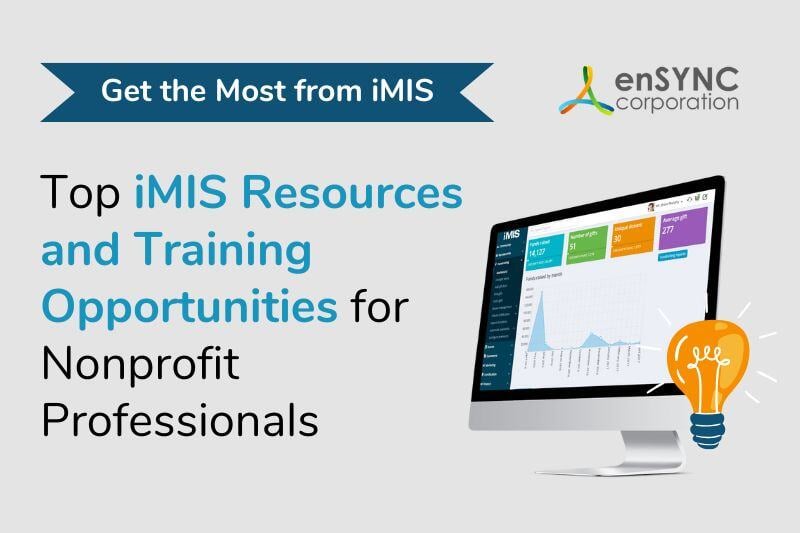Associations at Risk: How Tax Reform Impacts Associations
October 16, 2024
|
In recent years, tax reforms have reshaped the financial landscape for many organizations, including nonprofits and associations. These changes can significantly impact how associations operate. Understanding these reforms is critical to adapting strategies and ensuring long-term sustainability.
We’ll also take a look at what you can do to mitigate impact from diversifying funding sources to automating with tools like Sage Intacct.
How Are Current Tax Reforms Impacting Nonprofits and Associations?
Tax reforms often aim to raise revenue, increase progressivity, enhance efficiency, and improve global cooperation. While these changes can benefit individuals and for-profit businesses, they pose unique challenges for nonprofit associations.
One of the most significant impacts of modern tax reforms is reduced charitable contributions due to evolving changes in personal tax deductions and the unrelated business income tax (UBIT):
Reduced Incentives for Charitable Giving
One of the primary concerns for associations is the potential decline in charitable donations. Recent tax reforms have increased the standard deduction.
- The Tax Reform: The 2017 Tax Cuts and Jobs Act (TCJA) nearly doubled the standard deduction, raising it to $12,000 for single filers, $24,000 for joint filers, and $18,000 for heads of households.
- The Impact: These higher standard deductions effectively reduce the number of taxpayers who itemize deductions on their tax returns, removing the benefit of donating to charity.
- For many associations, this tax could decrease donations, impacting the funding and resources available to fulfill missions.
Unrelated Business Income Tax (UBIT)
Another aspect of tax reforms that affect associations is the treatment of unrelated business income.
- The Tax Reform: Under the new rules from the 2017 federal tax law, associations face increased taxes on income generated from “regularly carried on” activities determined as “unrelated” to their exempt purposes.
- The Impact: This could include revenue from advertising, merchandise sales, or facility rentals, necessitating a careful evaluation of income sources and potential tax liabilities. For clarification on what determines an activity as “unrelated,” you can review the IRS guidelines about UBIT.
More Tax Reforms to Consider
While increases in standard deductions and the UBIT are some of the most pressing and impactful adjustments to modern tax law, there are further policies in place for associations and nonprofit organizations to consider, including:
- The TCJA removal of local lobbying expense deductions
- Payroll tax
- Potential sales and use tax
Navigating the Challenges and Mitigating the Impact of Tax Reforms
Despite the challenges posed by tax reforms, associations can mitigate their impact and adapt to the changing environment by considering and implementing the strategies below:
Automate Processes
Time is a valuable and in-demand asset for nonprofit organizations. At times, daily administrative tasks take the backseat or go unorganized. Automating processes and integrating streamlined systems, like Sage Intacct, can free up time and effort that would be better spent understanding how policy will impact the mission.
Diversify Funding Sources
Associations should explore alternative funding sources beyond traditional donations. Diverse income streams can help stabilize finances and reduce dependence on donations without guarantees. Some alternative funding sources include:
- Corporate sponsorships
- Grants
- Partnerships with other organizations
Strengthen Member Engagement
Building solid relationships with members is crucial for associations. Enhancing member engagement and reiterating a member’s value can encourage continued support, even in a changing tax environment. For example, offering valuable resources, networking opportunities, and exclusive benefits can strengthen loyalty and retention.
Educate Members and Donors
Clear communication and transparency about financial needs and goals can foster trust and encourage ongoing support. Associations should educate members and donors about the changes in tax incentives and how their contributions continue to have an impact.
This dynamic and ever-changing environment requires adaptability and innovation as associations adjust to new realities and tax reforms. By understanding the implications of these changes and adopting effective strategies to mitigate harmful impacts, associations can continue to fulfill their missions and serve their members.
Need to Be Better Prepared for Tax Reforms? Find Out How Your Accounting Software Can Help.
Understanding the complexities behind modern tax reforms takes time. However, so does running a nonprofit. Integrating with a cloud-based accounting software can free up time for the tasks that matter most. Get in touch with our team to get started.

Chadd Arthur is a seasoned professional with over 25 years of experience in the non-profit sector, specializing in process improvement and the strategic alignment of organizational goals with technology solutions. Leveraging his extensive expertise, Chadd conducts regular strategic assessments for organizations, guiding them towards enhanced efficiency and effectiveness. With a profound passion for aiding clients in recognizing the value of process improvement, Chadd leads our team in secure technology solutions that directly contribute to their mission success. His commitment to excellence is evident in his contributions to the industry, including participating in panels and serving as a thought leader to a network of non-profit professionals. Chadd earned his MBA from Indiana University Bloomington and resides outside the greater Chicago area. Chadd not only brings a wealth of knowledge and experience but also a dedication to making a meaningful impact in the non-profit space.
Recent Posts

Get the Most from iMIS: Top Resources and Training Opportunities for Nonprofit Professionals
The right association management software system provides what your members need by keeping them engaged while also helping your organization stay...

Bay County Medical Care Facility Improved Reporting Accuracy by 70% with Sage Intacct
Bay County Medical Care Facility (BCMCF) is a government-owned and -operated skilled nursing community with 200+ beds dually certified by Medicare...
Enjoying our blog?
At enSYNC, we want to empower associations and nonprofits to make well-educated decisions. If you want our industry knowledge (and other free guides) sent directly to your inbox, fill out the form below.

